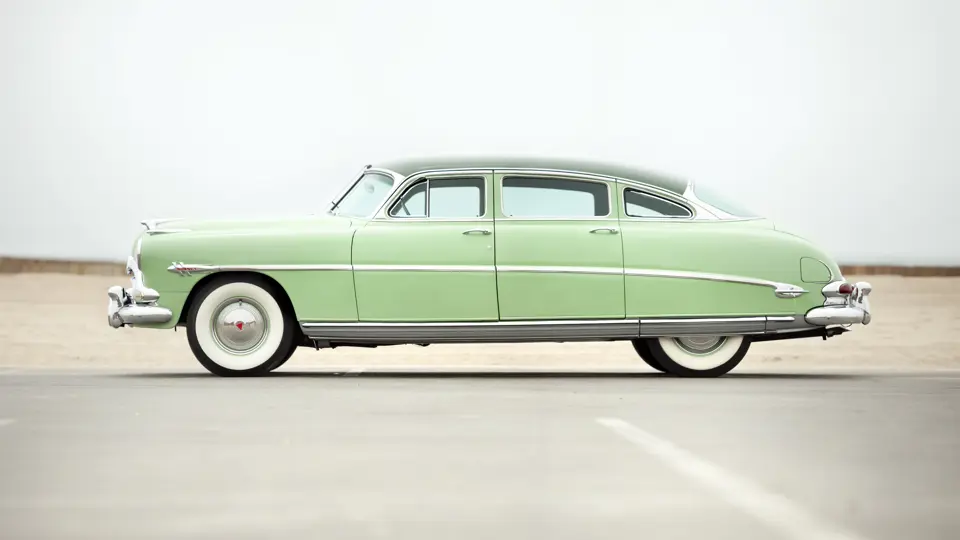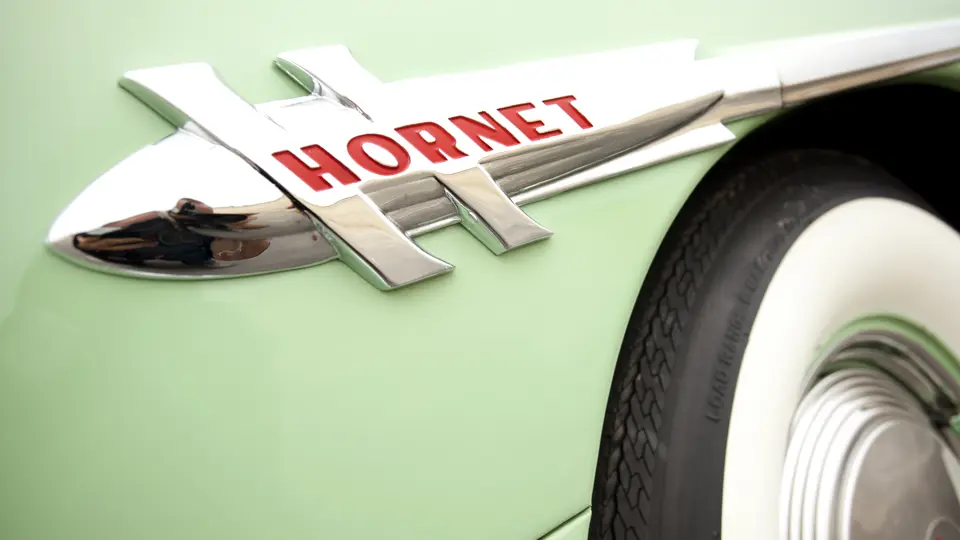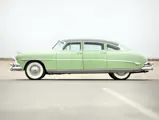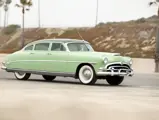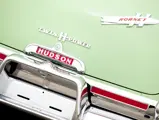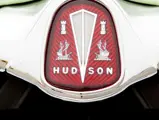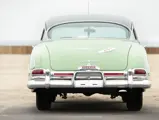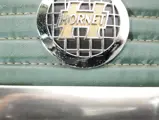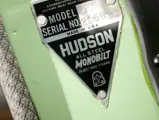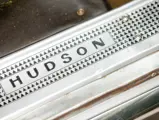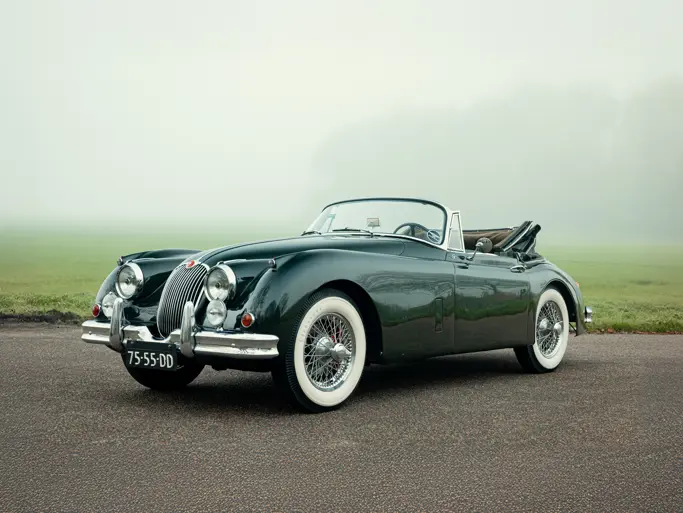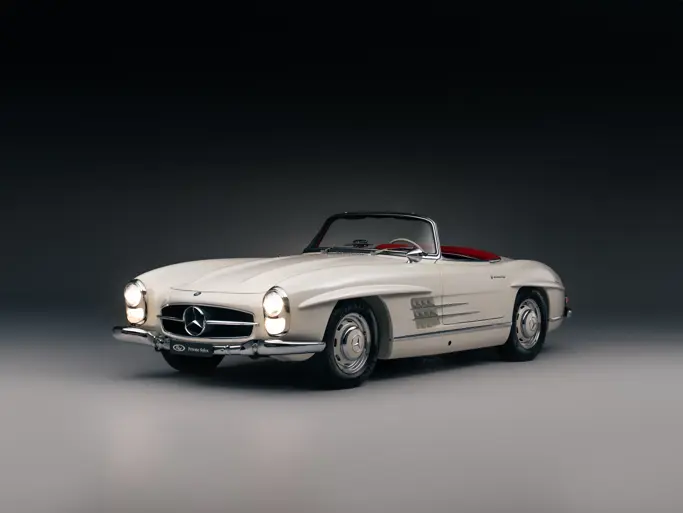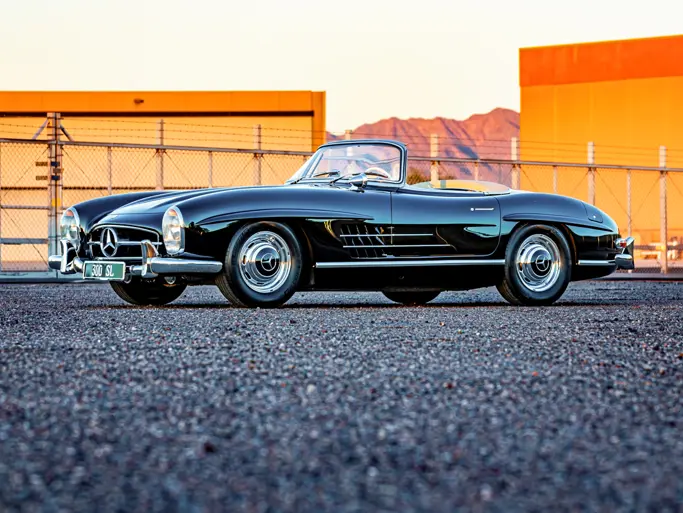Model 7C. 170 hp, 308 cu in valve-in-block “flathead” straight six cylinder engine, dual Carter single-barrel carburetors, Hydramatic automatic transmission, independent front suspension with coil springs, live rear axle suspension, and four-wheel drum brakes. Wheelbase: 124"
• Formerly owned by Steve McQueen and in his possession at the time of his passing in 1980; solid ownership provenance and iron-clad documentation
• Rare metallic green/surf green color combination
• Very original, preserved, and unrestored, save for one high quality repaint
• Single family ownership for 25 years
Steve McQueen, at one time the world’s highest paid, most popular actor, amateur motor racing driver, skilled motorcyclist, hands-on automotive enthusiast, sex symbol, and pop culture icon of intergalactic proportion, needs little introduction here or anywhere else. McQueen’s classic films that included automobiles, motorcycles, or motorsport as central plot elements include, The Great Escape, The Thomas Crown Affair, Bullitt, The Reivers, Le Mans, and The Hunter. McQueen wasn’t so much a car collector, in the traditional sense, as he was an enthusiastic gatherer of great motorized hardware and ephemera. He had the financial wherewithal to afford nearly any car or bike he wanted and had great taste and feel for cars. Throughout his life, he acquired, drove, and raced dozens of fabulous cars and hundreds of interesting motorcycles, among them, numerous Porsches, at least three Ferraris, a one-of-sixteen Jaguar XKSS, an ex-military half-track, and two Hudsons, one of which is on offer here.
The Hudson Hornet is likely the most famous of the historically significant “step down” Hudson model designs. The car’s chassis architecture, and the way the body was mounted on it, meant that entering passengers stepped down modestly into the interior of the car, and this also allowed for a lower center of gravity, which improved roadholding. This is one of the reasons the Hornet was such a successful race car, especially in the relatively new venue of NASCAR “stock car” racing. Hudson stuck with its tough, well-proven flathead six, souping it up from its original rating of 140 horsepower to 170 horsepower by virtue of “Twin H-Power,” which employed a higher compression ratio, and the factory installation of dual Carter single barrel carburetors—this combination in race trim yielded well over 200 horsepower.
Steve McQueen purchased this Hudson Hornet 7C Sedan in the mid-1970s, and it was registered into his name in August 1977. It is offered here with several certificates of ownership and title documents, as well as the actual blue and yellow California license plates the car wore during its tenure in his collection. This Twin H-Power Hudson was in his ownership and possession at the time of his passing on November 7, 1980. Subsequent to McQueen’s passing, an estate sale was held in November 1984, and the subject Hornet sedan was sold into private ownership at that time, which included a numbered certificate of authenticity signed by McQueen’s daughter, Terry, and son, Chad. That document, along with the aforementioned titles, registrations, license plates, and service and maintenance documentation since 1976, are included with the sale of the car today.
The current owner and consignor purchased the car in 1987, so it has remained in the same family ownership for approximately 25 years and presents to a very high and factory-authentic level. The engine was rebuilt during McQueen’s ownership, and the car has since been treated to one high-quality repaint to the factory original color scheme. Much of the chrome has been replated, and the McQueen Hornet still proudly wears its factory original interior.
This fine Hudson Hornet Twin H represents an attractive opportunity to acquire an important and interesting car that benefits from prior ownership by the “King of Cool,” with bulletproof and unquestioned documentation and provenance. It is an opportunity that will not come again soon.
Words: Matt Stone, author of McQueen’s Machines.
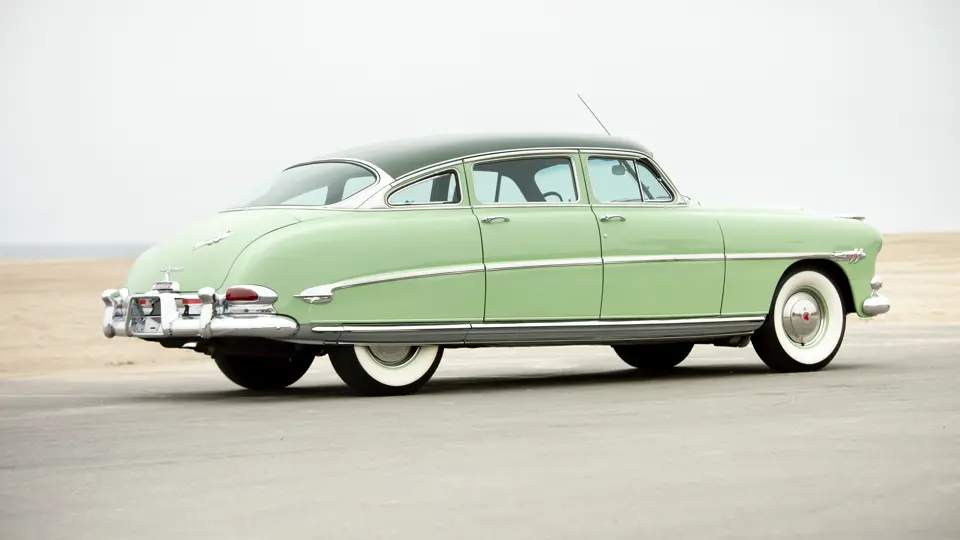
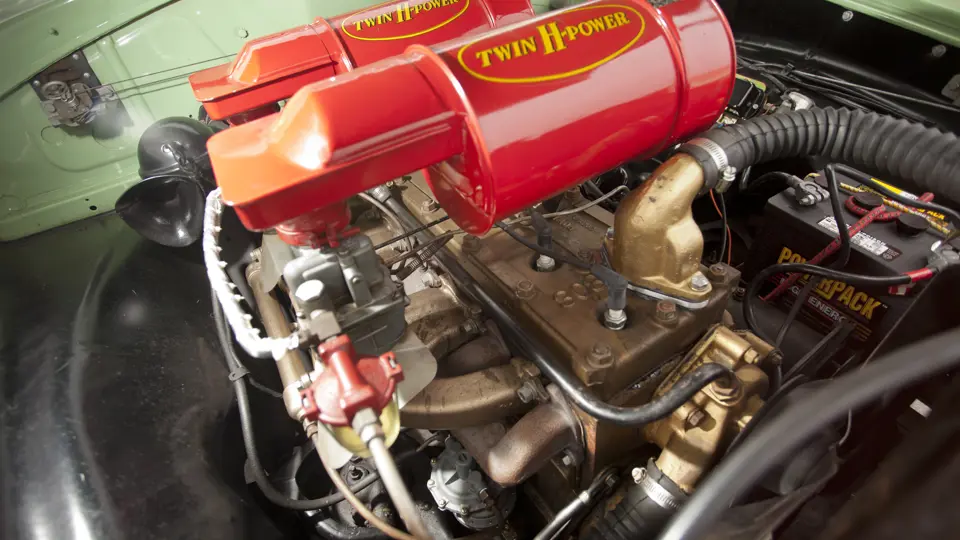
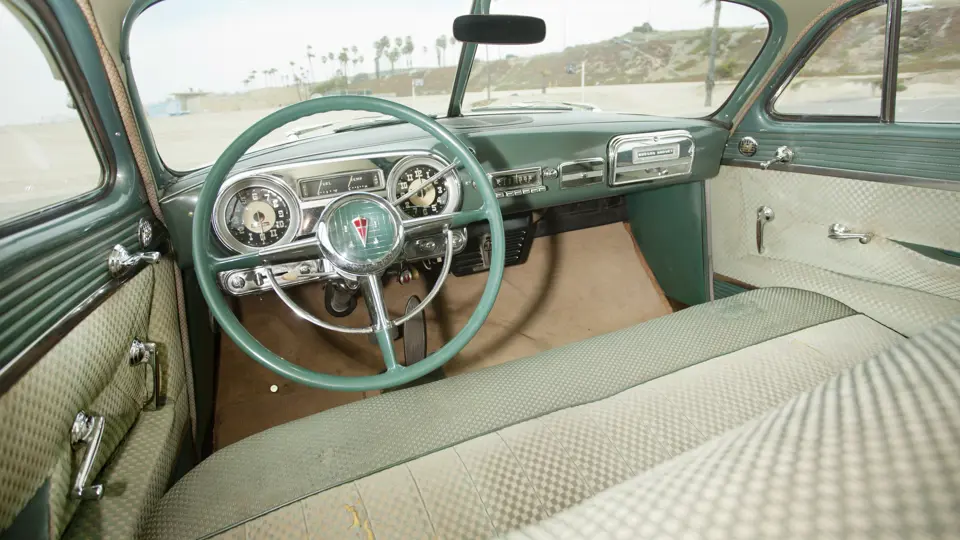

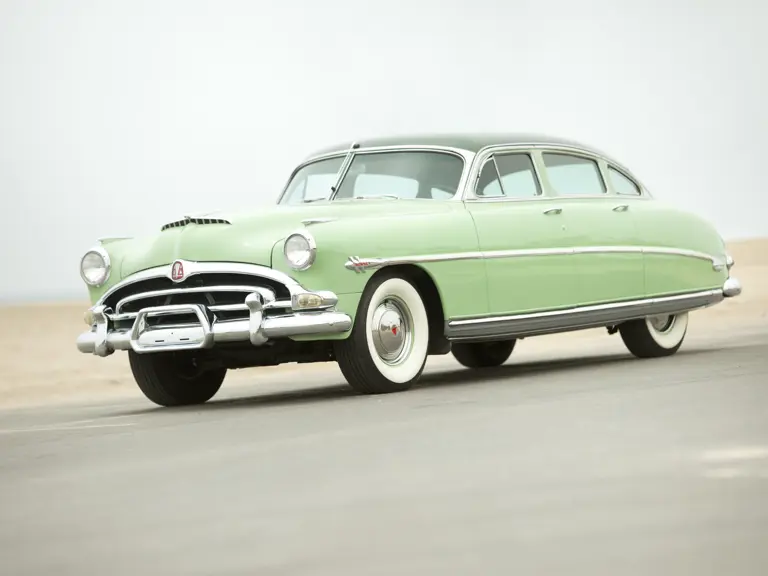

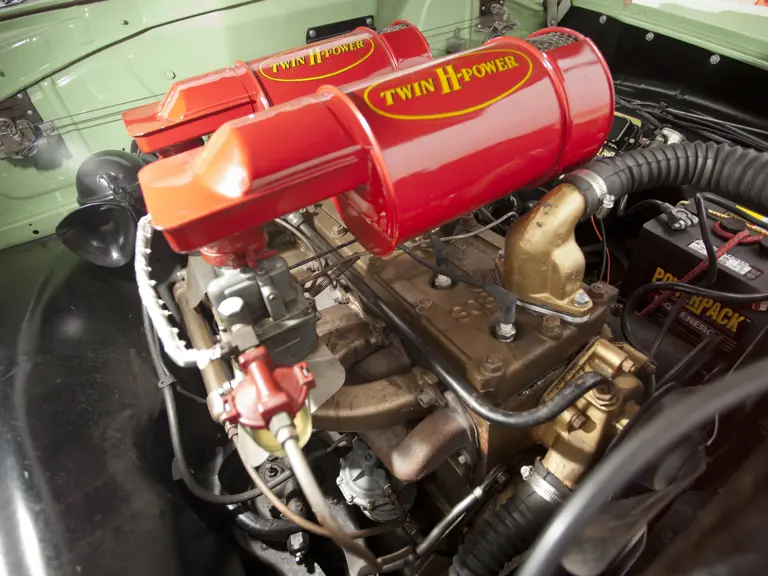
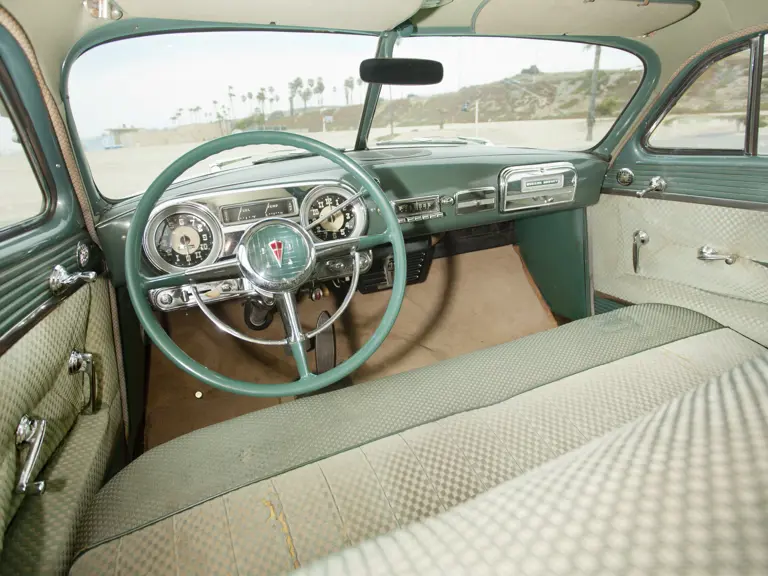

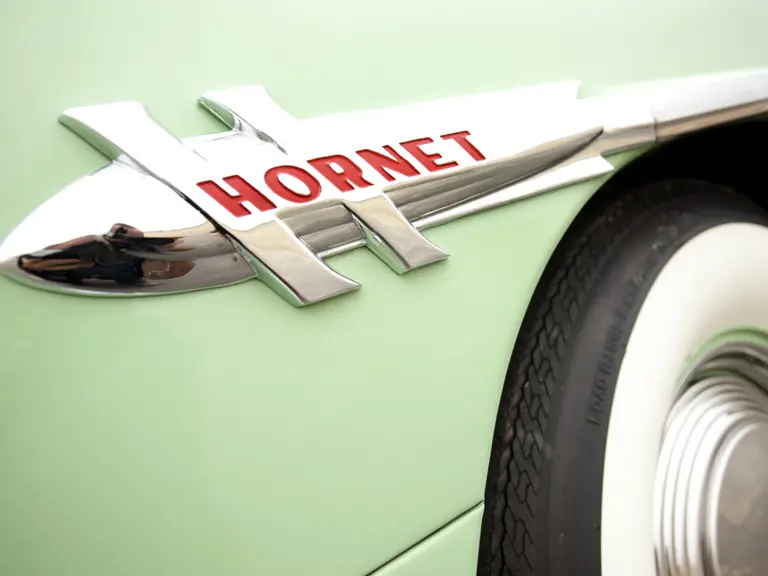
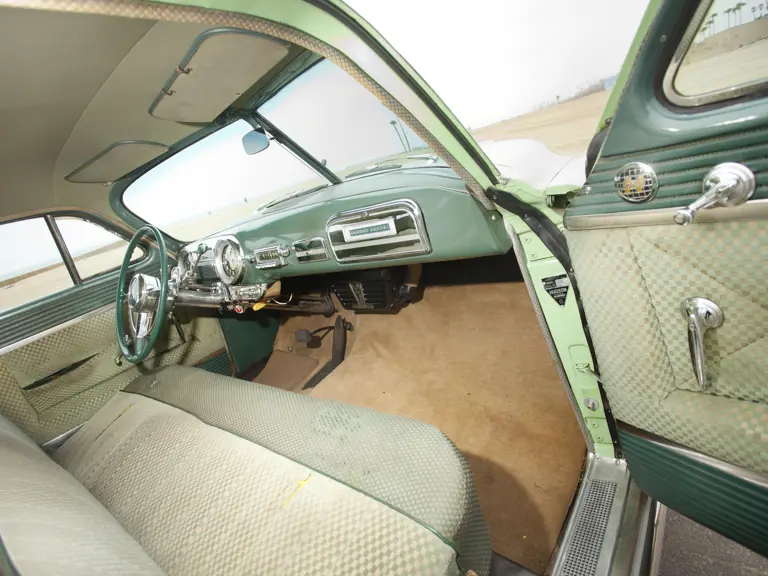

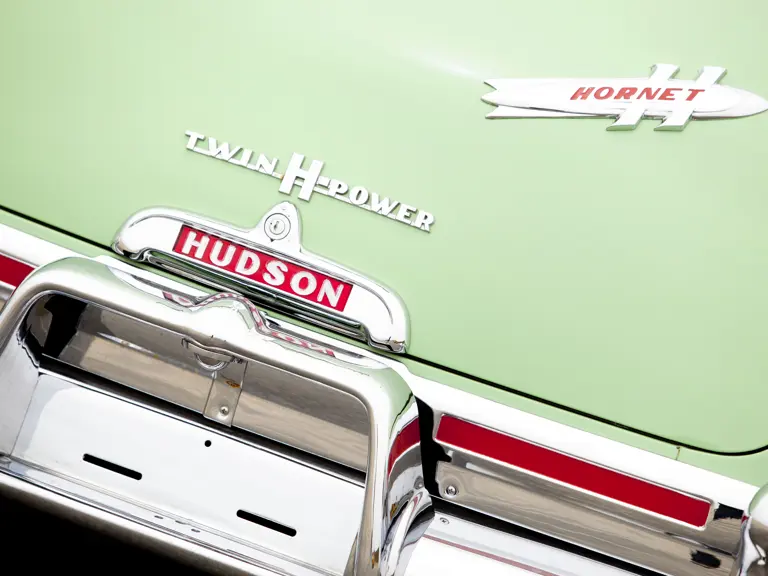
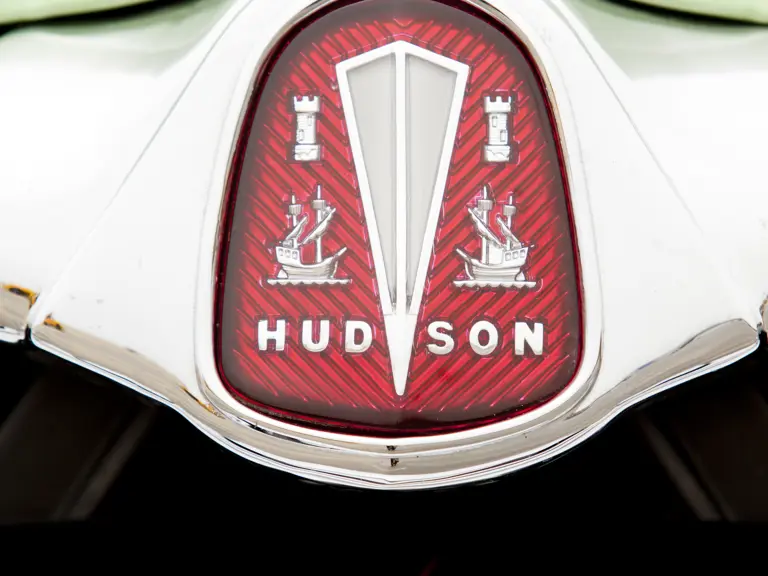
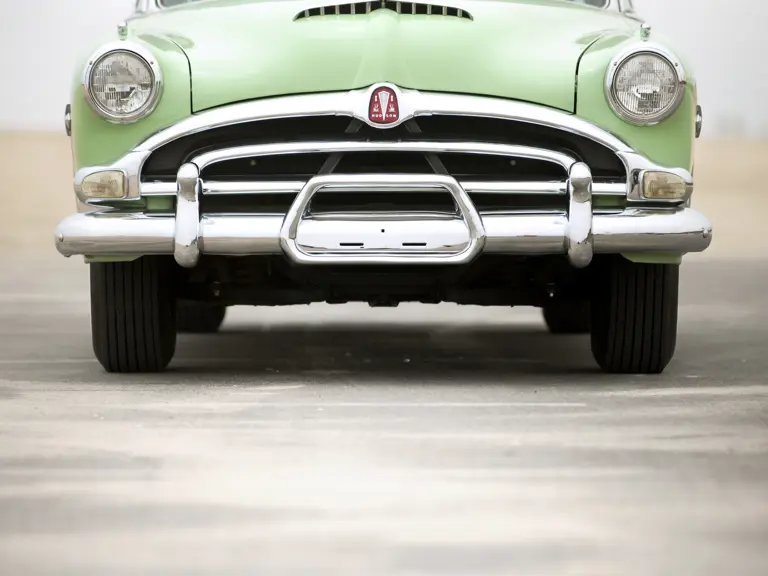
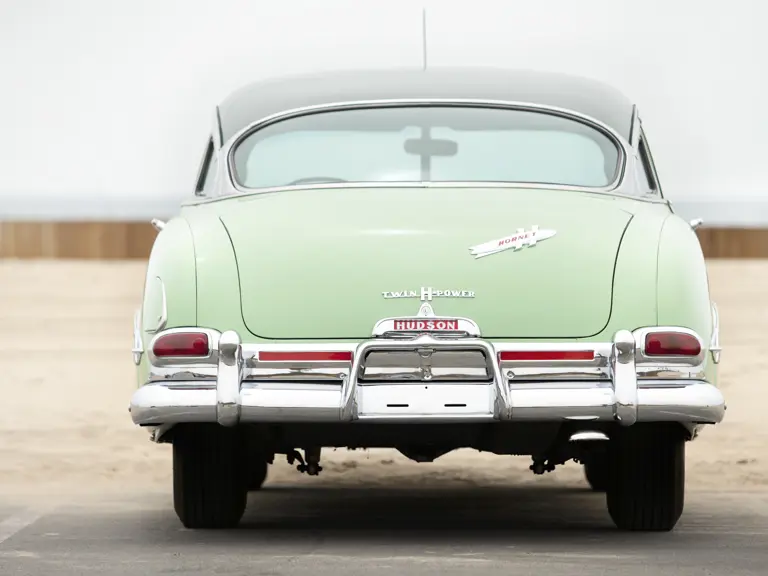
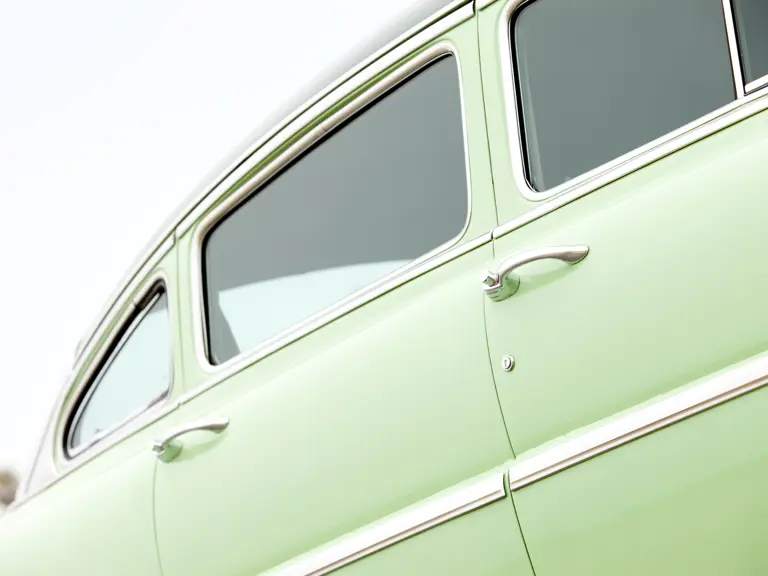
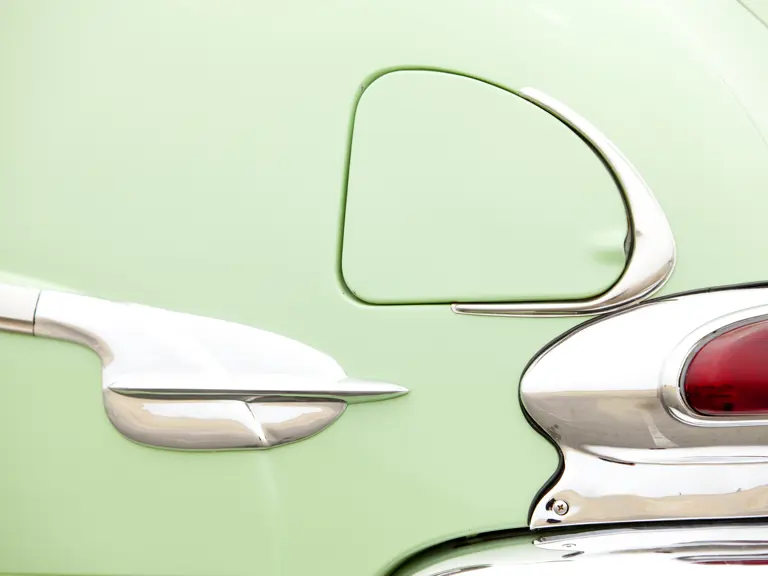
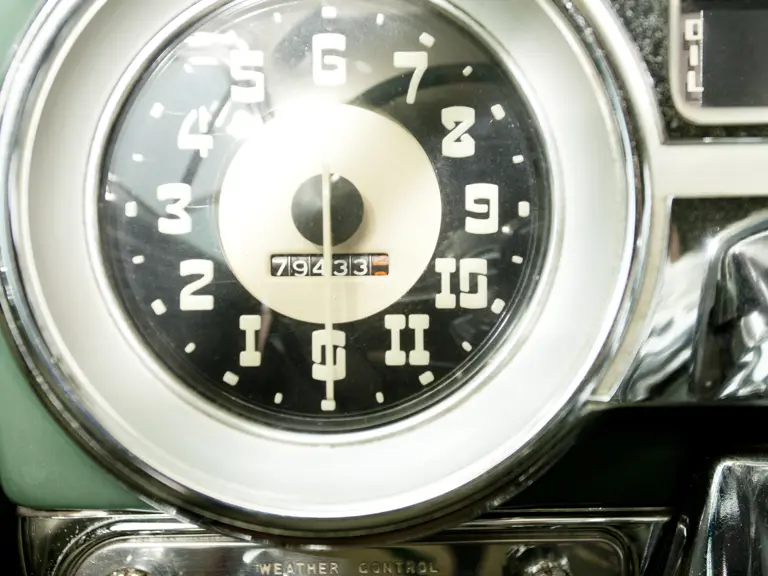
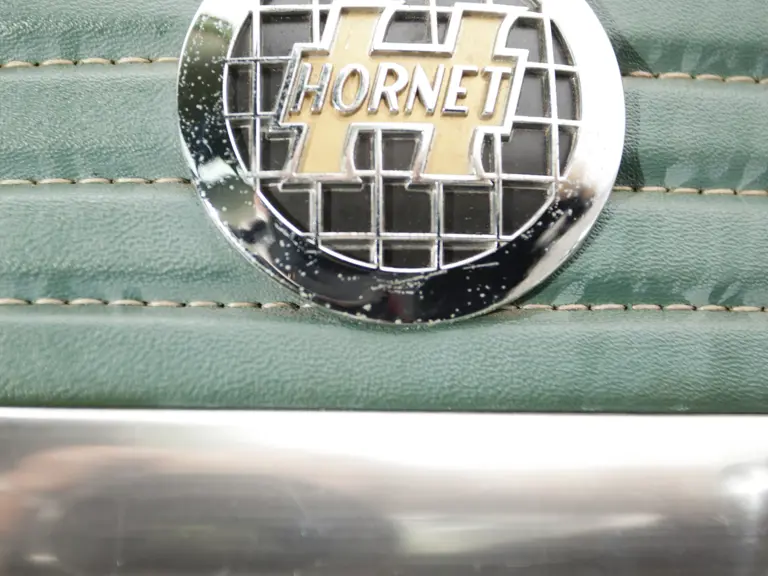
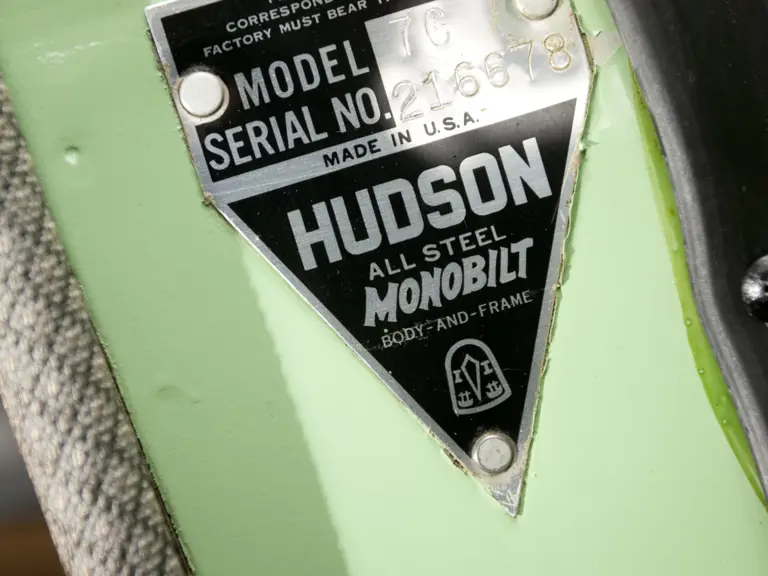
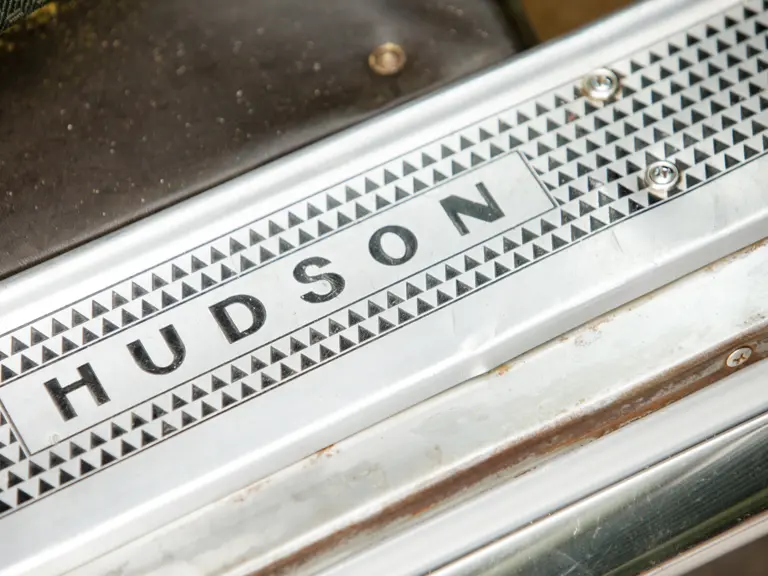
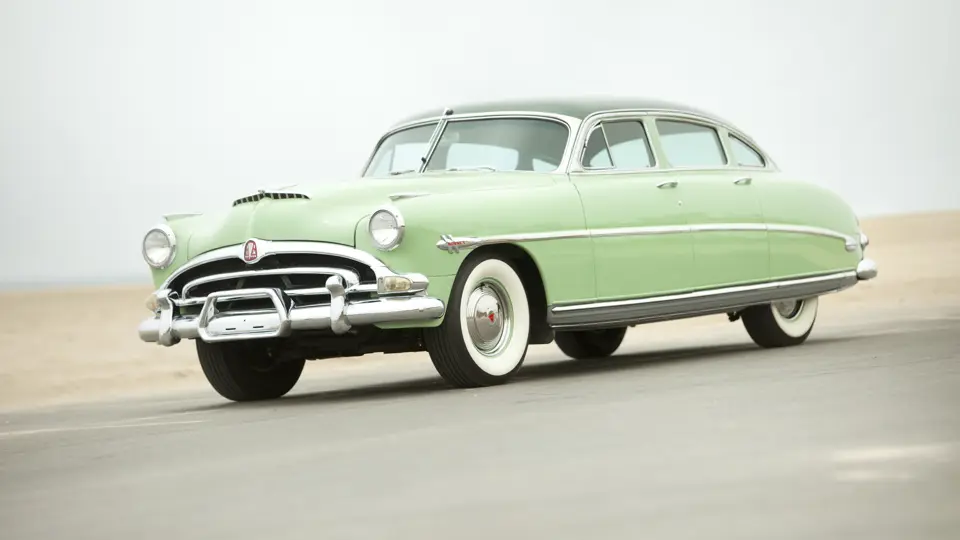
 | Monterey, California
| Monterey, California
